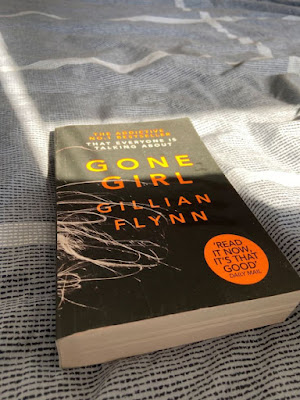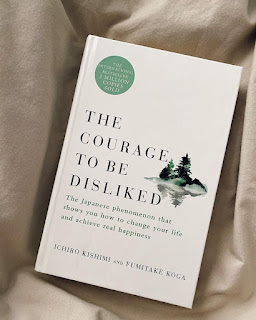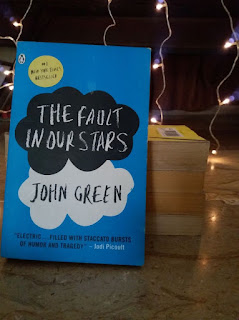Gone girl book summary - Readershub
Gone girl book summary
The book starts on the sunrise of Nick Dunne’s wedding anniversary. On that exact day, his wife Amy Elliott Dunne vanishes from their home in North Carthage, Missouri. A periodic years before, Nick and Amy walked from New York to Missouri, because Nick’s mommy, Maureen, was analyzed with stage four cancer. Amy, a born New Yorker, was not thrilled about the judgment her husband made without even discussing her, and the move aggravated the stress created by both Amy and Nick previously losing their jobs. Nick now labors at a bar he jointly owns with his twin sister Margo and teaches at the local town college. Amy has never found a job or made friends within their new community. Their relationship was a problem to the point that Amy vanished.
Nick obtains a call from his neighbor about wary signs at his house and hurries home to find that his wife has disappeared. Alarmed by apparent signs of her having been abducted, he instantly calls the police. By nighttime, his cabin is filled with cops and news columnists. The widespread media awareness comes in part from Amy's fame as the inspiration for the imaginary character in the Amazing Amy story series. The series was jotted down by her parents Rand and Marybeth Elliott, who are teenage psychologists. Rand and Marybeth are called to assist in the search for their daughter. Questions about who might have hurt or kidnaped Amy raise several suspects from her past: Hillary Handy, a gripped fan of the Amazing Amy books; Desi Collings, her prep school sweetheart who had been tormented with her for years; and Tommy O’Hara, Amy’s ex-boyfriend who she impeached of rape. While initially, people are kind and confirm to Nick, he quickly notices that the operatives question him closely and have suspicions. Nick knows that in cases where a woman vanishes, her spouse or boyfriend is often the prime suspect. As a result, he tries not to reveal that his relationship was troubled, or any other details that might accuse him, which results in him saying a series of lies to the police and operatives. The narration of the events enclosing the disappearance, told from Nick's perspective, substitutes with a procession of diary entries written by Amy, detailing the duration from the minute she met Nick to the day before her disappearance. The diary shows Amy as a positive, loving, and confirming wife. Extent she and Nick initially have a picture-perfect fantasy, but the pressure of job loss and the move takes a toll on their friendship. The diary describes Nick slowly becoming different, greedy, violent, and mandating to Amy, which causes Amy to become afraid of him. She even buys a gun to insure herself if necessary. The last entry in the diary, from the day before Amy's disappearance, ends with her making a dark joke about perhaps being killed by Nick.
While glancing for evidence in the Dunne house, operatives find an envelope with the clues Amy has composed for a treasure hunt, a formal she observes every year for their anniversary. As Nick follows the clues, he becomes increasingly apprehensive and cautious that Amy knew more about some of his unknown than she let on. As he reflects on his wife's identity as a strong-willed, compulsive, and power-hungry woman (an idea that does not align with Amy's personality as it is presented in the diary), he commences admiring if Amy has somehow directed the disappearance herself to frame him and penalize him. As days pass, detectives uncover more and more proof that causes Nick to look more and more suspicious: there are clues of blood loss on the kitchen floor, an indication of marital problems, and valuable credit card transactions in Nick's name, which he vouches he didn't make. Numerous of Nick's preliminary lies get uncovered, and he also makes an unfavorable impression in the media. Nick is also very afraid of his largest unknown being exposed: he has been having an affair with one of his students, a young woman titled Andie.
The circumstance grows worse and horrible for Nick, until during a candlelight vigil honoring Amy, Noelle Hawthorne, Amy’s best friend, interrupts his language to accuse him of slaughtering his wife, and also reveals that Amy was pregnant. Nick finds this news shocking. A few years earlier, he and Amy had maintained fertility medications in hopes of bringing pregnant, but she then lost attention to the plan. However, Amy's medical histories demonstrate that she was indeed pregnant, creating even more public understanding and pressure to find her. Nick is increasingly sure that he is the patient of an evil scheme on Amy's part. The last clue of Amy’s treasure search leads him to the woodshed that Margo has in her home, which contains the bargains charged to the credit card. This forcefully gives the feeling that Nick has been plotting his wife's death. Part Two begins with Amy relating the events encircling her disappearance. She has created a complicated plan, which she has been working on for over a year, to fake her murder and frame Nick for it. Increasingly disappointed in and frustrated by her husband, when she discovers he is having an affair, that is the final straw. She has written the diary purposefully to fabricate an image of herself as sweet, sympathetic, and innocent, and to make Nick look capable of a violent crime. She also opened the credit cards and made all the purchases, and faked a pregnancy by using the urine of her pregnant friend Noelle and passing it off as her own. On the day of the disappearance, she cuts herself and sheds her blood to make it look like she has been attacked, also staging the house to suggest an intrusion and a struggle. Using a disguise and a car she has secretly purchased, she then drives to a cabin in the Ozarks to hide out. She plans to enjoy watching Nick be accused of her murder and go to prison for it. The final step will be for her to kill herself and allow her body to be found, apparently confirming his guilt, so that he will be executed for her murder.
The narration now alternates between Amy and Nick's perspectives. Nick, aware of how much suspicion surrounds him, hires Tanner Bolt, an attorney most famous for winning cases for men accused of murdering their wives. He confides to Tanner his belief that Amy has framed him, and Tanner helps to do some damage control to Nick's image. It seems like he might again become an object of sympathy, but the revelation of his affair with Andie is more damning news. The police also find the items hidden in the woodshed, and arrest Nick for the murder of his wife. Meanwhile, Nick has been conducting his research into Amy's past and finds that many of the stories she has told don't seem to be true, and suggest that she is highly skilled at lying and manipulation. Nick knows that his only hope is to convince Amy to come back, and he tries to make himself as appealing to her as possible, while secretly planning to kill her once she returns. Amy's plans go awry, first as she becomes less interested in the idea of suicide, and second after some people she meets in the Ozarks steal all the money she had saved to survive. She now has to change her plan, and she reaches out to Desi Collins, her wealthy ex-boyfriend. She tells him that she has run away because Nick was abusing her. Because Desi is obsessively in love with her and wants her all to himself, he takes her to his lake house. Once there, Amy increasingly finds Desi oppressive and controlling. As Amy watches Nick's interactions with the media, she finds herself more attracted to him. She decides to escape from Desi and return to Nick. Knowing what Desi finds attractive, she seduces him, and then, after they have sex, she drugs him with sleeping pills.
Nick is shocked, when forty days after disappearing, Amy shows up at his doorstep, bloody and bruised. The story she tells both Nick and the police at first is that she was abducted by Desi, who unexpectedly showed up at her house on the day of the anniversary. Since then, he has been holding her captive and raping her repeatedly. She was finally able to get her hands on a knife, which she attacked him with, killing him, and then returned in shock to her home. She also accounts for her pregnancy by saying that she had a miscarriage shortly after being abducted. Nick doesn't believe this story and tells her so, but he plays along with the story in front of the elated media because it confirms his innocence. Amy's medical examination corroborates her story and while some of the detectives see suspicious holes in her account, she can defuse further questioning by accusing them of being incompetent and having been fixated on pursuing the wrong suspect. Alone with Nick, Amy admits to the whole story, including deliberately murdering Desi and faking her escape just as she faked her abduction. He is horrified and disgusted and wants to reveal the story to the world. Amy, however, has been careful to ensure that there is no record of this confession, and she also still has fodder for blackmail. The diary was never revealed as fake, and in it, Amy documents an instance that strongly suggests Nick poisoned her with antifreeze. To further corroborate it, she did consume antifreeze and saved and froze some of her vomit. If this evidence is revealed and tested, she can accuse Nick of attempted murder. Supported by Margo, Tanner, and Detective Boney, all of whom by this point believe that Amy faked her disappearance, Nick decides to wait.
Amy and Nick resume a standoff, warily living together. Amy starts writing a memoir about the public story of her experiences, which she knows will make her a lot of money. She also alludes to a plan to guarantee Nick will never mislead her secret. Nick, still angry, commences writing his memoir revealing the truth about her. He is shocked when Amy reveals that she is pregnant: she had herself inseminated with sperm frozen from the couple's fertility treatments. She makes it clear that if Nick ever betrays her, she will turn the child against him, and feeling protective of their future son, Nick gives up any hope of revealing Amy's treachery and acknowledges that the two of them are stuck with each other. He deletes his book. The two build an unstable marriage, and the novel stops with the impending birth of their child, who is expected on their marriage anniversary, one year after Amy's disappearance. However, the conclusion makes it clear that Amy's sociopathic need for power, and Nick's contempt for her, will never go missing.
Gone girl book review
On its ground, Gillian Flynn's Gone Girl occurs to be a run-of-the-mill dilemma with a somewhat standard plot: On the morning of his fifth relationship anniversary, Nick Dunne gets a call at work from an apprehensive neighbor: his front door is wide open. Nick scrambles home to find a tea kettle-cooked to nothing on the stove, furniture reversed in his living cabin, and his wife Amy missing. He of course calls the officer, who instantly begins analyzing the disappearance as a crime. The book follows the circuit of the inquiry as more and more evidence leads them to understand Nick has murdered his wife. This fairly normal synopsis, however, belies the book's uniquely problematic article and the deliciously evil plot twirls that improve it from common pot-boiler to "oh my gosh you must read this now" status.
The story is alternately told by Nick and Amy. Nick's voice continues the first-person account throughout, radioing the current state of the inquiry into Amy's disappearance. We realize even before Amy goes missing that all is not good with their marriage. Nick muses early on in the novel, "Something is disturbing about recalling a warm memory and feeling utterly cold." He describes his reaction to his wife's cheery greeting on the morning she disappears: "Bile and dread inched up my throat." He also admits to us that he is lying to the police, although not about what, exactly. It's instantly noticeable that Nick is a questionable narrator and that we, his audience, should not trust him.
The other choice is Amy's, first in diary entries wrapping the five years from her meeting Nick through her disappearance, and later her first-person report of incidents as they evolve. Here, too, it's bitterly obvious that their marriage is the very picture of dysfunction. The incremental deterioration in the team's connection as chronicled from each person's juncture of view expands a certain percentage of depth to the narrative, particularly throughout the first section of the novel. The author excels at clarifying the destruction of a one-time loving relationship into misery for which each party bears duty.
Small more can be said about the plot without including spoilers. Suffice it to say, it's a roller-coaster ride with enough shocks along the way to keep even the most jaded contradiction anthology absorbed.
My one objection is that Flynn is not very modest about how she wants you to understand her personality; I felt manipulated - almost manhandled - into reacting to the characters in specific ways at key points in the plot. All authors, of course, guide a reader's feelings, but when it's too overt it evolves into a distraction. Those who read for style as much as the plot may find this overshadows their enjoyment of the book, but those who are simply looking for a terrifically entertaining page-turner will probably be too immersed to notice.
On winning Gone Girl I instantly contacted my companions to argue they read it; it's one of those books that I simply couldn't wait to discuss with others. I found it to be an original, immersing mystery that kept me guessing throughout. It's the perfect novel for readers looking for fast-paced escapism.
Gone girl book quotes
- "Wear this, don't wear that. Do this chore now and do this chore when you get a chance and by that I mean now. And give up the things you love for me, so I will have proof that you love me best. It's the female pissing contest -- as we swan around our book clubs and our cocktail hours, there are few things women love more than being able to detail the sacrifices our men make for us. A call-and-response, the response being: "Ohh, that's so sweet."
- "You don't ever want to be the wife who keeps her husband from playing poker - you don't ever want to be the shrew with the curlers and the rolling pin. So you swallow your disappointment and say okay."
- "I am not okay. I will be okay, but right now I am not okay. I want my husband to put his arms around me, to console me, to baby me a little bit. Just for a second."
- "Americans like what is easy, and it's easy to like pregnant women - they're like ducklings or bunnies or dogs. Still, it baffles me that these self-righteous, self-enthralled waddlers get such special treatment. As if it's so hard to spread your legs and let a man ejaculate between them."
- "Give me a man with a little fight in him, a man who calls me on my bullshit. (But who also kind of likes my bullshit.) And yet: Don't land me in one of those relationships where we're always pecking at each other, disguising insults as jokes, rolling our eyes, and "playfully" scrapping in front of our friends, hoping to lure them to our side of an argument they could not care less about."
- "I don't have anything else to add. I just wanted to make sure I had the last word. I think I've earned that."
- "I feel like Amy wanted people to believe she was perfect. And as we got to be friends, I got to know her. And she wasn't perfect. Do you know? She was brilliant and charming and all that, but she was also controlling and OCD and a drama queen and a bit of a liar. Which was fine by me. It just wasn't fine by her. She got rid of me because I knew she wasn't perfect."
- "Something bad was about to happen. My wife was being clever again."
- "He pauses, and I know he is about to lie. The worst feeling: when you just have to wait and prepare yourself for the lie."
- It's a very difficult era in which to be a person, just a real, actual person, instead of a collection of personality traits selected from an endless Automat of characters. And if all of us are play-acting, there can be no such thing as a soul mate, because we don't have genuine souls.












Comments
Post a Comment